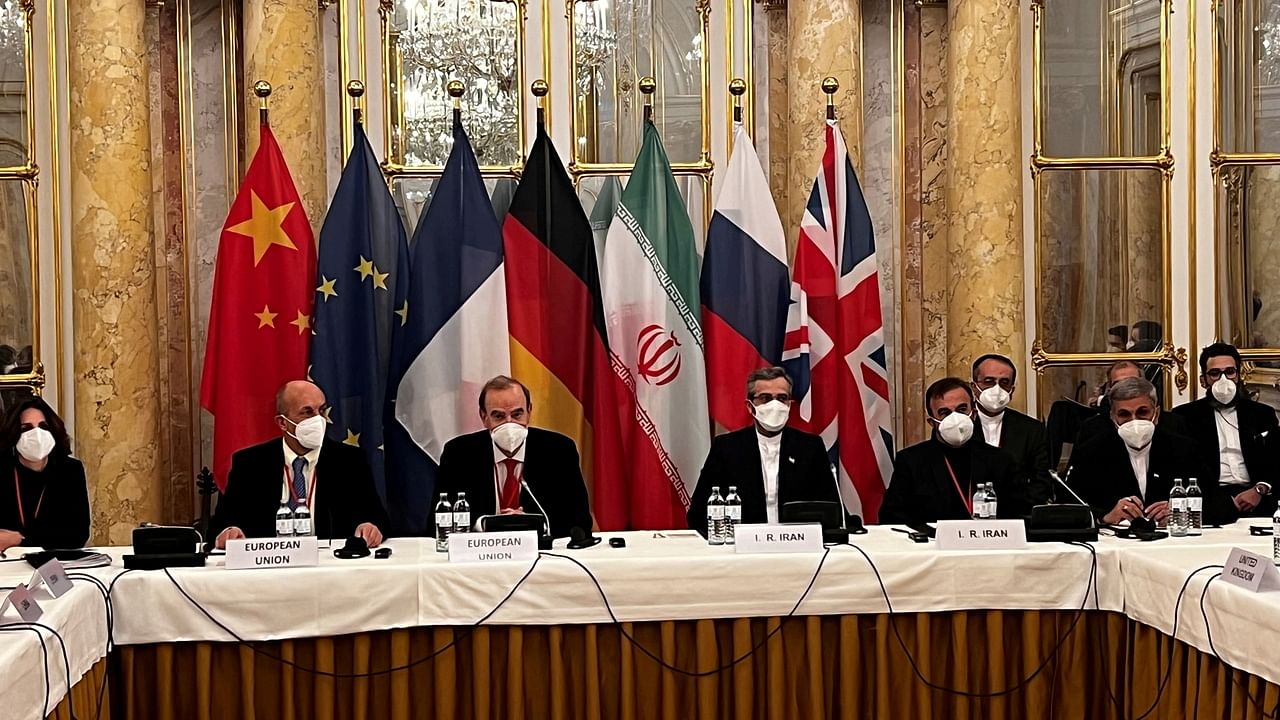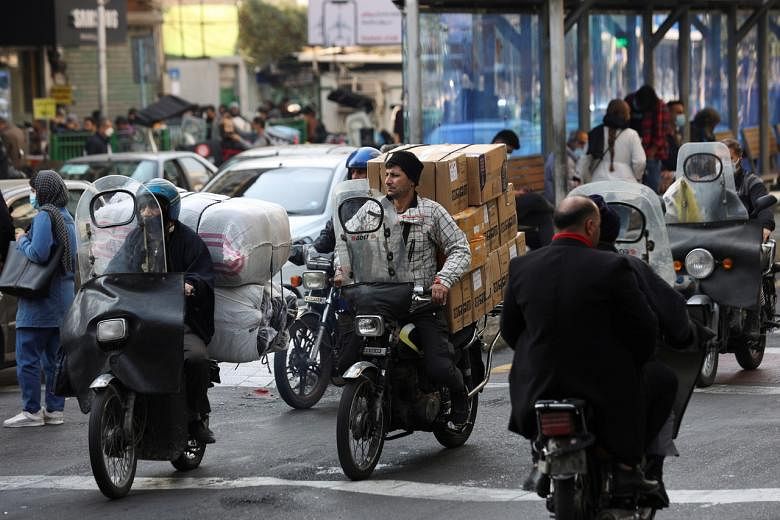WASHINGTON (AFP, REUTERS) - The United States has slapped fresh sanctions on a dozen Iranian officials and entities for serious human rights abuses, ahead of the expected resumption of nuclear talks with Teheran after they halted last week without any concrete progress.
The sanctions announced by the Treasury and State Department targeted government officials and organisations involved in the repression of protesters and political activists, and prisons where activists have been held in brutal conditions.
The Treasury also placed several Syrian officials on its sanctions blacklist for their roles in political repression and chemical gas attacks, and Uganda's military intelligence chief was hit with sanctions for extreme abuse of people arrested for their nationality or political beliefs.
The announcement came ahead of the Washington-hosted Summit for Democracy later this week, billed as a push to promote more free and open societies.
"The United States is committed to promoting democracy and accountability for those who abuse human rights around the world," said Secretary of State Antony Blinken in a statement.
"The United States will utilise its full range of tools to highlight and disrupt these abuses of human rights," he said.
The Iranian sanctions singled out officials and entities involved in brutal crackdowns on protests in 2009 and 2019, including Mr Hassan Karami, the commander of the LEF Special Units, which are focused on crowd control and protest suppression, the Treasury said.
Also named was Mr Gholamreza Soleimani, who commands the Basij, the country's Islamic militia also involved in the deadly 2009 and 2019 crackdowns.
The Syrians blacklisted included two air force major-generals, Tawfiq Muhammad Khadour and Muhammad Youssef Al-Hasouri, whom the Treasury said were responsible for chemical gas attacks that killed numerous civilians in 2017 and 2018.
Security officials considered responsible for other harsh attacks on opponents of the regime of Syrian President Bashar al-Assad were also named.
"These senior officials and the organisations they are associated with have imprisoned hundreds of thousands of Syrians who peacefully called for change. Moreover, at least 14,000 prisoners in Syria have allegedly died as a result of torture," the Treasury said.
The Ugandan hit with sanctions was the commander of the Chieftaincy of Military Intelligence, Major-General Abel Kandiho.

People arrested by Maj-Gen Kandiho's bureau "were subjected to horrific beatings and other egregious acts by (military intelligence) officials, including sexual abuse and electrocutions, often resulting in significant long-term injury and even death", the Treasury said.
The US Treasury "will continue to defend against authoritarianism, promoting accountability for violent repression of people seeking to exercise their human rights and fundamental freedoms" said Ms Andrea Gacki, head of the Treasury's sanctions office.
The expansion of the broad US sanctions on Teheran came after the first direct negotiations on limiting Iran's nuclear programme in five months failed to make headway, with both sides blaming the other for unwillingness to give ground.
But talks are to resume on Thursday, Teheran's main negotiator said during a visit to Moscow.
"I deemed it necessary at this stage to consult the Russian authorities in order to continue the talks in a constructive atmosphere," Mr Ali Bagheri, Teheran's chief nuclear negotiator, said on Tuesday according to Iranian state television's Iribnews website.
A US official was cautious about the next round.
"We are much less concerned about the when, and much more concerned about...whether Iran comes back to Vienna prepared to engage in good faith, prepared to engage sincerely, and steadfastly as we are," the official told reporters on grounds of anonymity.
Meanwhile, France's foreign minister said he feared that Iran was playing for time.
"The elements... are not very encouraging," Mr Jean-Yves Le Drian told a French Parliament committee, referring to the seventh round of nuclear talks between Iran and major powers that began on Nov 29 and paused last Friday.
"We have the feeling the Iranians want to make it last, and the longer the talks last, the more they go back on their commitments... and get closer to capacity to get a nuclear weapon," Mr Le Drian said.
The indirect US-Iranian talks in Vienna, in which other diplomats shuttle between them because Teheran refuses direct talks with Washington, aim to get both sides to resume compliance with the deal.
However, last week's discussions broke off, with European and US officials voicing dismay at sweeping demands by Iran's new, hardline government under anti-Western President Ebrahim Raisi, whose June election caused a five-month pause in the talks.
Speaking on Monday, US Central Intelligence Agency director Bill Burns said the agency does not believe Iran's supreme leader has decided to take steps to weaponise a nuclear device but noted that it has made advances in its ability to enrich uranium, one pathway to the fissile material for a bomb.
Iran denies seeking nuclear weapons, saying it only wants to master nuclear technology for peaceful purposes.
"We don't see any evidence as an agency right now that Iran's supreme leader has made a decision to move to weaponise," Mr Burns told the Wall Street Journal's CEO Council Summit.
Mr Burns described Iran's challenge as "a three-legged race" to obtain fissile material, to weaponise by placing such material into a device designed to cause a nuclear explosion, and to mate it to a delivery system such as a ballistic missile.
On weaponisation, Mr Burns said "the Iranians still have a lot of work to do there as far as we judge it".

